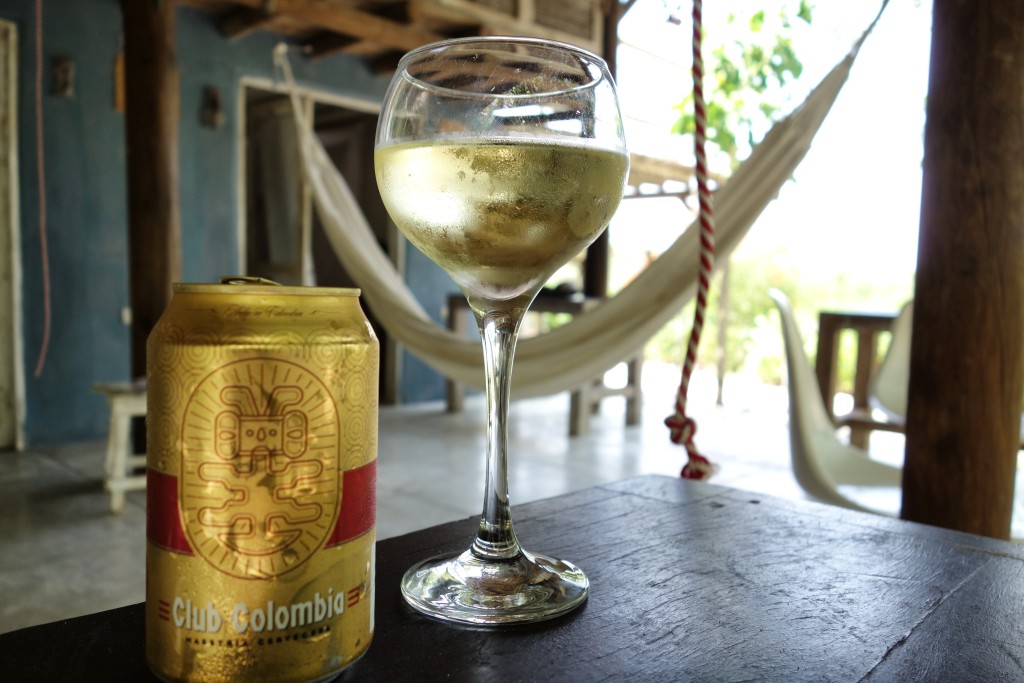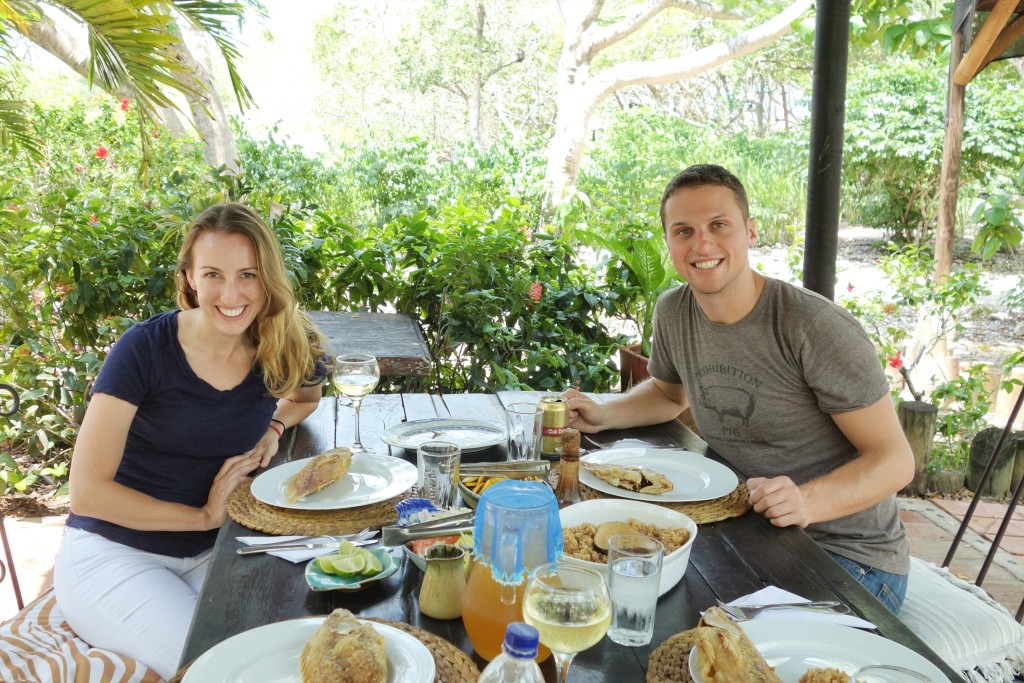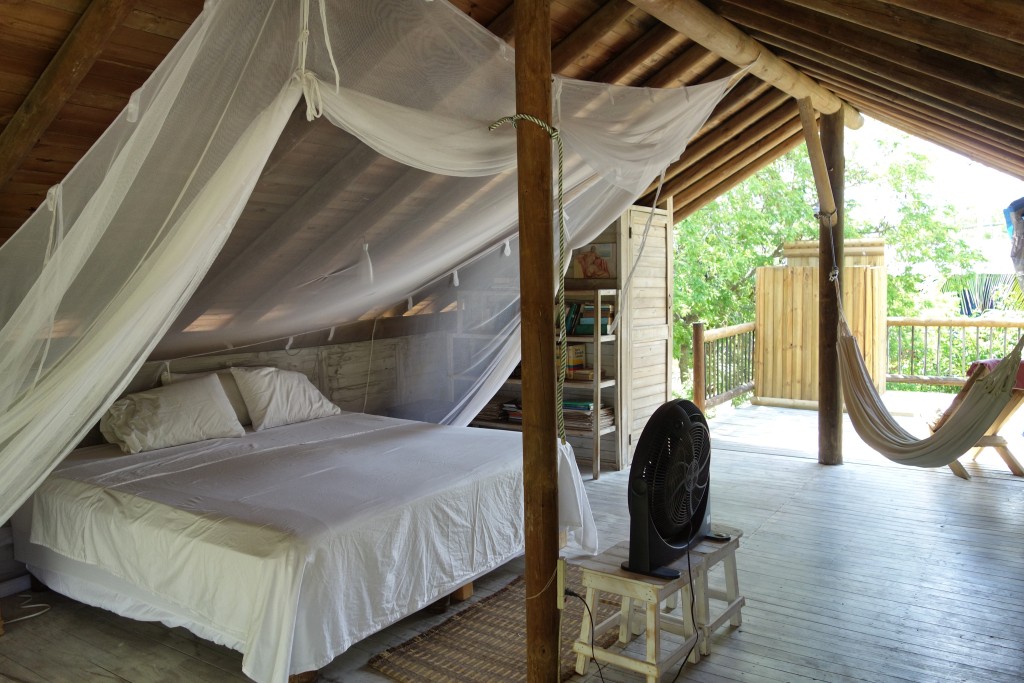We arrived to hotel Playa Manglares under less than optimal circumstances. We had tried to contact the host to arrange a car, but she was unresponsive, leaving us in a taxi. A droopy eyed dog with oversized ears swung back and forth through the impoverished streets of Cartagena. We drifted further and further into nothingness on the only road down Baru. (One of us, who will remain unnamed, was certain that this is how the kidnappings happen). We sat outside a large gate on a call with the son of the hotel owner, describing its dark bamboo wood for reassurance that this was, in fact, the right place and we were safe to enter.
“How did you get here?” Olga exclaimed. “I was so worried! I tried to message you!” It was an enthusiasm that never left her voice for the duration of our two day stay. Rolling our bags to the hammocks, we helped ourselves to a drink at the “trust” bar outside, marking off one cerveza and one blanco vino as we tried to calm ourselves enough to see the paradise we had booked just three days before.

The property was perfect. Palm trees and fallen coconuts. Untouched sand. White hammocks tied to trees mere steps from the Caribbean water. Light white fabrics moving with even the slightest breeze. But it was also a place that felt more real. Blue tarp to suggest failed construction. Thoughtless knickknacks like a smiling sun wind chime. And a number of workers hacking at thick roots near wheel barrels, a definitive sign that this land is not easy to inhabit. There was an authenticity to this paradise that made it feel more honest. Unlike a forced resort, at this place we could relax without the pressure to be.
Our room was the top floor, open to the elements with a pitched wood ceiling, mosquito net covered bed, and outdoor shower that had only one temperature, turned on and off by a knob shaped like a little bird. Meals were served at a table for six between the rooms and the ocean. They happened when they happened, and were what they were, brought out course by course on a large tray and served on beautiful plates that made even pasta look decadent. A tiny, beaded net covered the fresh juices to keep out flies.

“I bought this property in 1986,” Olga told us as we waited for our cab one morning. “There was nothing here. Not even a road. If we wanted to come, we had to come by donkey.” She went on to tell us that her husband was diagnosed with liver cancer when their children were older. His treatments cost them everything. They had nothing but a piece of land, and doctors told them that he would soon die. So they decided to come, living in a small camp they’d built on the property. They knew that if something were to happen, that there would be no way to get to a hospital. And they knew that something would happen. So they lived, and they waited. “Ten years went by,” she said, “and we were happy.” She went on. “Then one day we were sitting down, talking. He said something funny, and I laughed. He was always so funny. I closed my eyes for only a moment while I laughed, and then I kept talking. I said something else, but he wasn’t there anymore. He was gone. Just like that.”
We don’t know what you would do in those moments, how your mind or body would react. It’s an aloneness we’ve never experienced.
With a gratitude for time mixed with the hardness incited by loss, Olga finished the guest house she and her husband had been constructing. She makes additions when it feels right and meets each visitor with the same enthusiasm, creating the property we had first entered so tentatively. The juxtaposition of the blue tarp with the flowing white fabrics seemed almost reflective of the great beauty and loss in her own life.

After we left, she wrote to us. She wished us well on the next part of our trip, thanked us for coming, and noted how nice we are together. “We hope you’ll keep yourhappy for always,” she wrote. We are so grateful to this woman for sharing her home and her story with us. We’ll treasure this honest paradise forever.
